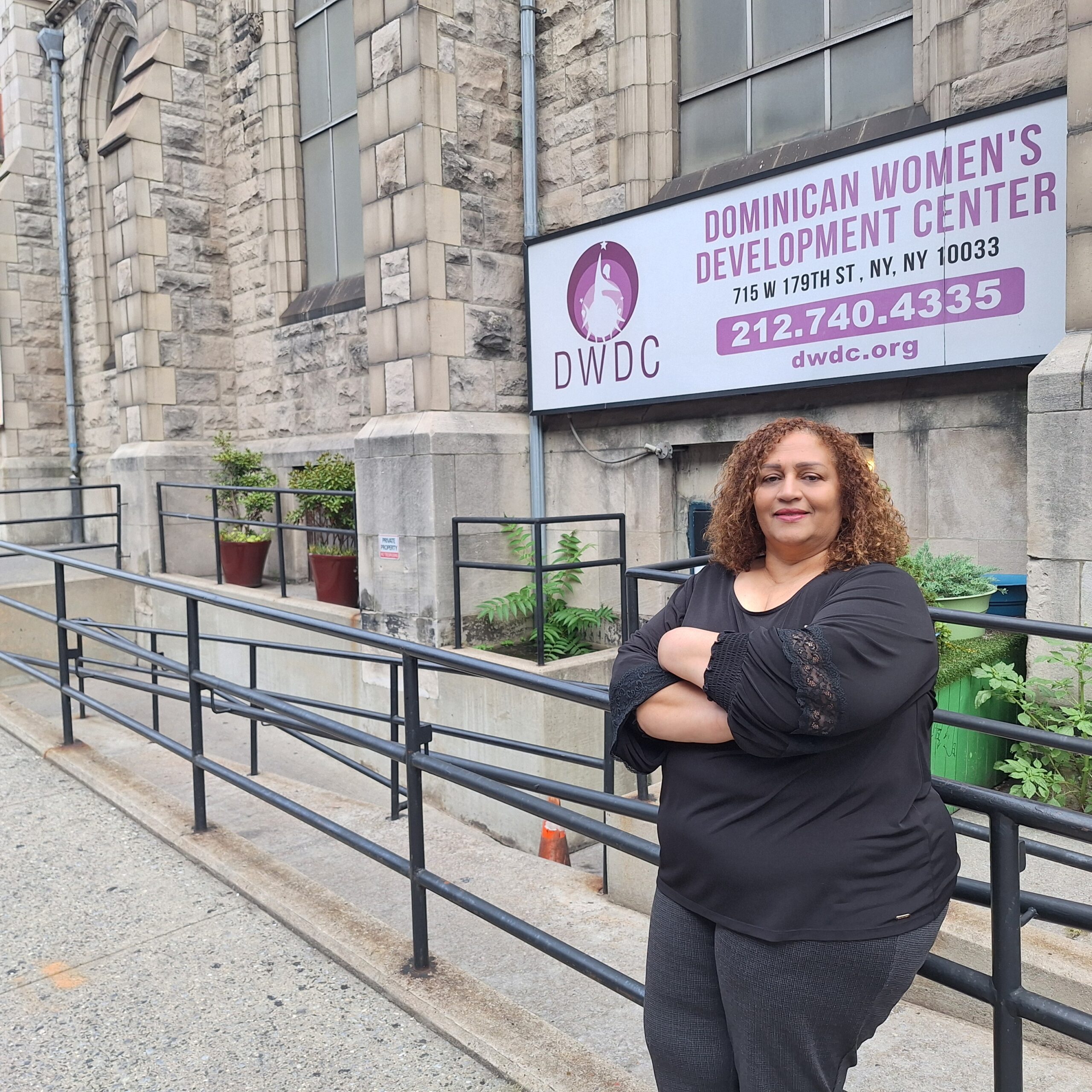Twenty-two years ago, when community activist Jacqueline Guilamo arrived in the Big Apple from the Dominican Republic, she almost immediately began looking for spaces where she could lend her shoulder to vulnerable communities. A life mission she had learned from her parents since she was a child. Today she is part of the team at the Dominican Women’s Development Center (DWDC) in Washington Heights, a reference point for social services throughout the city to transform lives.
“Although the name of this organization makes it seem like it is an exclusive place for Dominican women, we must always make it clear that it is a center for the family, regardless of their origin. It was created by Dominican women, who were already familiar with social service on the island,” notes Guilamo, who this year was recognized as a cultural ambassador of the Dominican National Parade, which will take place on Sunday, August 11 on Sixth Avenue in Manhattan.
At DWDC there are a number of flagship programs, such as the project that provides services to immigrant women victims and survivors in cases of domestic violence, stalking and sexual assault.
In addition, support is offered to members of the LGBTQIA community who have suffered family discrimination. There is a ‘Day Care’ that aims to better integrate children into their future experiences. Additionally, there are training programs for women to learn trades that will guarantee their survival.

“Girls with strollers”
Since Guilamo set foot in New York, he began to closely observe the challenges that existed among the Hispanic communities of Upper Manhattan, especially with the trend of “girls with strollers” and drug use among young people. This situation was the driving force for him to join the organization Culturarte, where more than 1,000 young people participated in artistic activities that combined messages to prevent early pregnancy and drug addiction.
She then joined the DWDC as a volunteer, and then became part of this organization founded in 1988, which has as its cornerstone, addressing the institutional inequalities faced by Hispanic families, including inadequate access to quality education, housing, health care, employment, mental health services, substance abuse and rehabilitation programs, among others.
This dynamic community development center, in the heart of the Little Dominican Republic in the Big Apple, was founded by renowned activist Rosita Romero.
It is estimated that 10,000 people are helped each year.
“It is extraordinary to be part of a team that gets up every day with the idea of changing lives, that is helping families to have a more harmonious development, that inspires children and young people to think about the future. I believe that working with love for the community is the only way for everything to change,” says the Dominican who has academic studies in Latin American culture.
Dominican Pride
For Jackeline Guilamo, personal recognition is not what nourishes her most, but being named cultural ambassador of the island’s National Parade seems like an extraordinary opportunity to highlight the pride, culture, legacy and spirit of solidarity that defines the Dominicans.
“I am very grateful to Cristina Contreras, president of this important event, for this appointment. Especially because I know that behind this event, there are initiatives that facilitate university scholarships for our young people. Anything that means attracting more sponsors to this parade fills me with commitment and excitement,” said the activist.
Guilamo argues that it is time to make visible the need for the Dominican Women’s Development Center to expand its programs, to have a much larger headquarters to be able to serve more people. And that necessarily requires more funding.
“The migration crisis poses many more challenges, more families in vulnerable situations. My dream is that we can grow, to have more spaces. The scope and benefits of our programs have been proven,” he concluded.
Connect with services:
- For more information about the Dominican Women’s Development Center, visit dwdc.org, call 212-740-4335 or email info@dwdc.org
